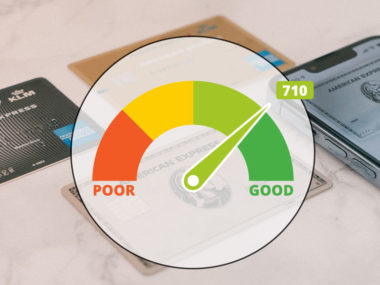Your credit report presents a picture of your financial history. It comprises several different factors, such as the length of your credit history, your credit utilization rate, and your percentage of on-time payments.
A credit inquiry is a way for an outside party, such as a lender or financial institution, to view your credit report. It is usually made when you apply for a mortgage, car loan, or credit card. An inquiry may also be made by a prospective employer or landlord.
There are two types of credit inquiries: soft and hard. Soft inquiries will reveal the same information that a hard check does, though the latter can affect your overall credit score when they are performed.
Table of Contents
Soft Inquiry
A soft inquiry, sometimes called a “soft pull,” occurs when an individual or a company makes a credit inquiry as part of your background check. This may happen if you have applied for a credit card or if an employer is running a background check before hiring you. The credit card companies you already have cards with may also perform a soft inquiry each month.
Examples of Soft Credit Checks
You’ll incur a soft credit check in the following instances:
- Checking your own credit score: You may perform a soft credit check on your own report to monitor your progress.
- Employment background check: Your employer may do a check to determine your eligibility for a job.
- Pre-qualified credit card offers: Prospective lenders may do so to determine if your score is strong enough to warrant a special offer.
- Pre-qualified insurance quotes: Insurance companies may check your credit to determine if you are a qualified candidate.
A lender, employer, or landlord can perform a soft inquiry without your permission. A soft inquiry will show your current credit card accounts, your payment history, and any collections accounts. Soft inquiries are only visible when you check your credit report. Soft checks do not affect your credit score, but will remain on your credit report for two years.
Hard Inquiry
A hard credit inquiry, sometimes called a “hard pull,” occurs when a credit card company or lender checks your credit history before deciding whether or not to offer you a credit card or loan. Unlike a soft pull, a lender will need your permission to make this type of credit inquiry.
Checking your own credit score will not result in a hard inquiry. A hard pull can lower your credit score by up to five points, which may increase your interest rate on some loans. Hard inquiries stay on your credit report for up to two years, but usually only affect your score for one year.
Examples of Hard Credit Checks
You’ll incur a hard credit check in the following instances:
- Mortgage application: Lenders may perform a hard credit check to see if you qualify for a mortgage.
- Credit card application: Lenders may also make a hard inquiry to see if you qualify for a line of credit.
- Auto loan application: They may also do so to see if you qualify for an auto loan.
- Student loan application: Student loan lenders may check your report to assess your eligibility
- Home rental applications: Prospective landlords may do a hard credit inquiry to see if you will be required to pay advance rent.
- Personal or business loan application: Lenders may check your credit to assess your eligibility.
Recent hard inquiries on your credit report let a lender know that you have been shopping around for new lines of credit. Too many hard inquiries at once may signal to lenders that you are trying to take on too much debt, and can hurt your ability to get approved.
This is why you want to be mindful when applying for things like multiple credit cards. The exception to this is called rate shopping — if you have several checks from auto or mortgage lenders within a 45-day period, these will be counted as one check. This is because rate shopping is viewed as a positive and responsible financial exercise.
How to Remove Inquiries From Your Credit Report
If there’s a hard inquiry on your credit report that was unauthorized, you can actually remove it. This will reverse any damage done to your score and improve your ability to get loans and new types of credit.
You’ll need to write a dispute letter explaining the error and include a copy of the report containing the error. You should receive a response within 30 days. The addresses you can send dispute letters to for each of the three major credit bureaus are:
Experian:
1117 Perimeter Center
West Suite E501
Sandy Springs, GA 30338.
TransUnion:
TransUnion Consumer Solutions
P.O. Box 2000,
Chester, PA 19016-2000.
Equifax:
Equifax Disclosure Department,
P.O. Box 740241,
Atlanta, GA 30374.
There’s no process for removing soft inquiries to your report, and it isn’t really necessary, as they don’t affect your credit score.
How to Manage Your Credit Inquiries
Credit inquiries can have a profound impact on your credit score,so it’s important to be able to manage when inquiries show up on your report. Here are some ways that you can keep track of your credit inquiries.
Plan Ahead When Shopping for Rates
Although you cannot completely avoid hard inquiries, you can limit them by being strategic with your money management. For example, don’t bother applying for credit lines that you know you’re not going to qualify for. Remember, when you’re shopping around for the best rates, conduct your searches within 45 days to minimize the impact on your credit score.
Monitor your credit throughout the process. If your bank or credit card company doesn’t offer free educational credit scores, there are many free credit score apps available.
Get Your Free Annual Credit Report
You are entitled to one free credit report each year from each of the three main reporting agencies; Equifax, Experian, and TransUnion. Requesting one of these reports will have no impact on your credit score.
You should review the reports carefully. If there is a discrepancy in the information between the reports, this could be because the different credit bureaus have different information.
For example, you may have applied for credit under different names, or your lenders may have reported credit information at different times, which means they may not all be up to date. By reviewing these reports, you can have a better understanding of what lenders see when you apply with them.
Report Problems Immediately
If you notice that a hard inquiry has been run without your permission or you see any other inaccurate information on your credit report, you can dispute the issue with the appropriate credit bureau or the Consumer Financial Protection Bureau (CFPB). Reporting these issues with a dispute letter can help improve your credit score, and even identify instances of identity theft.
Image Source: https://depositphotos.com/





